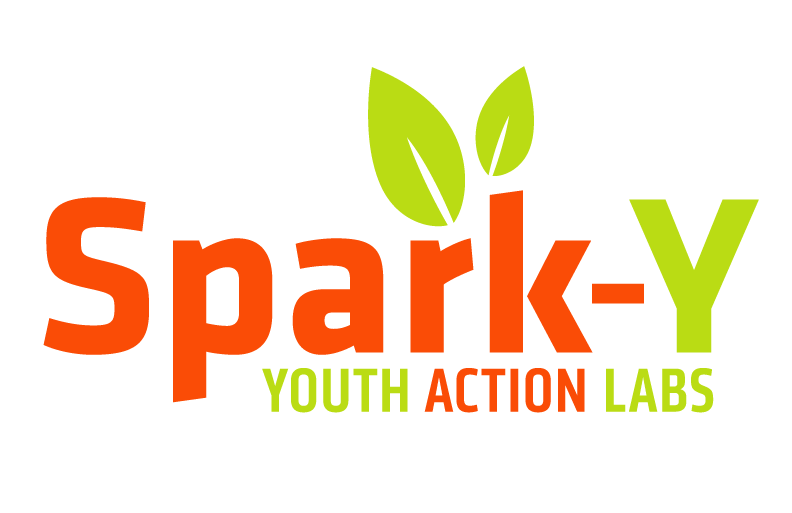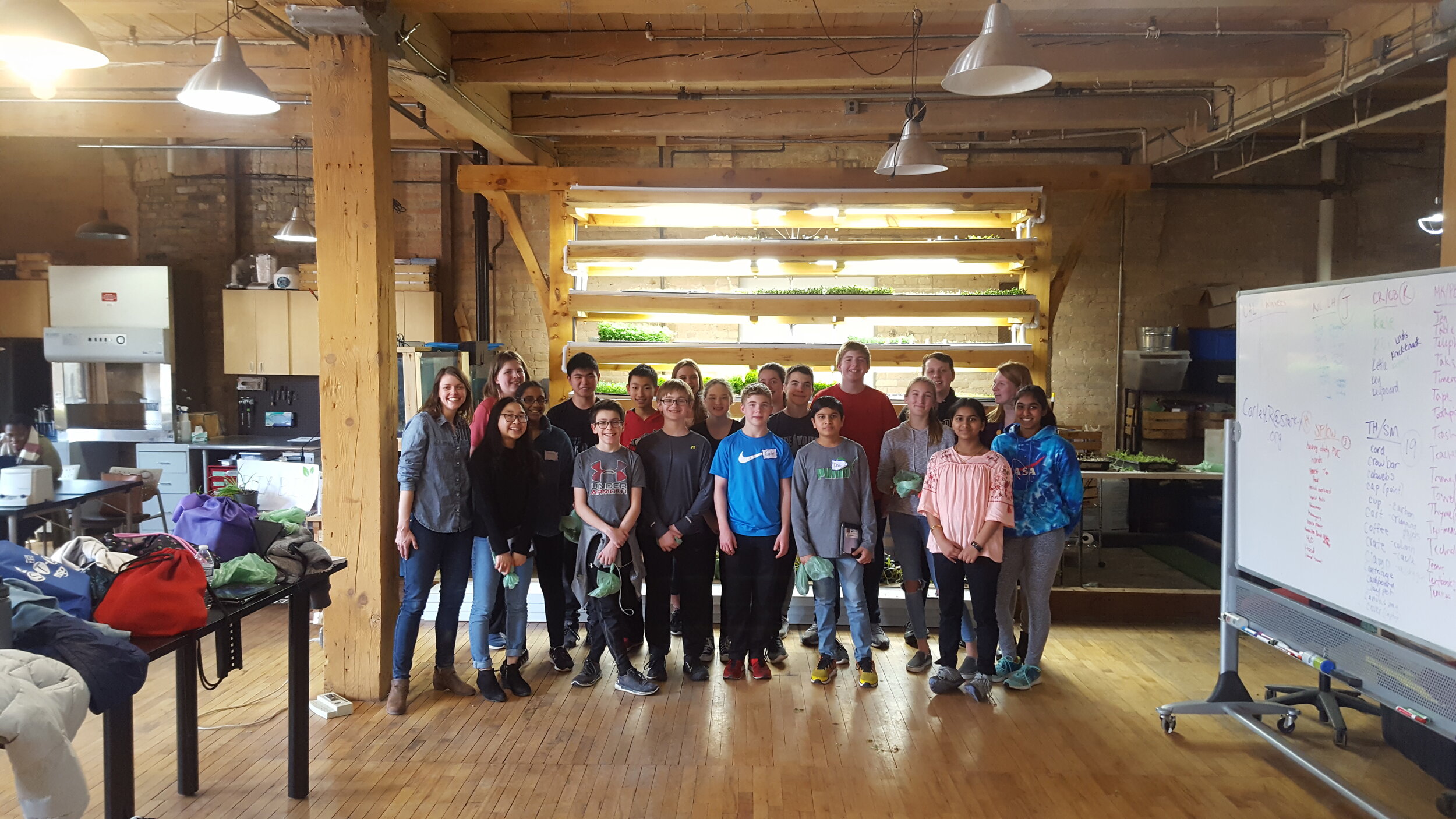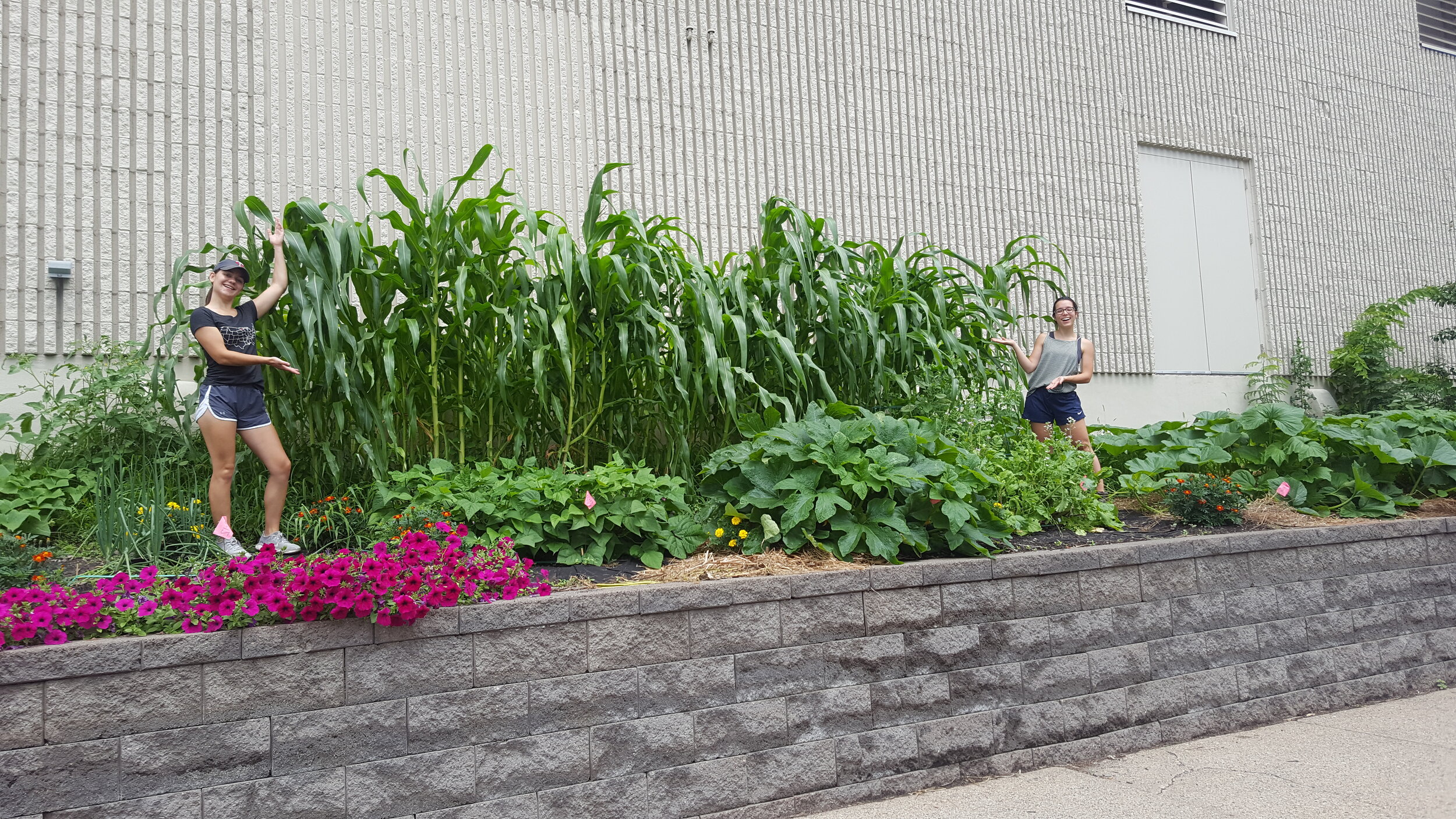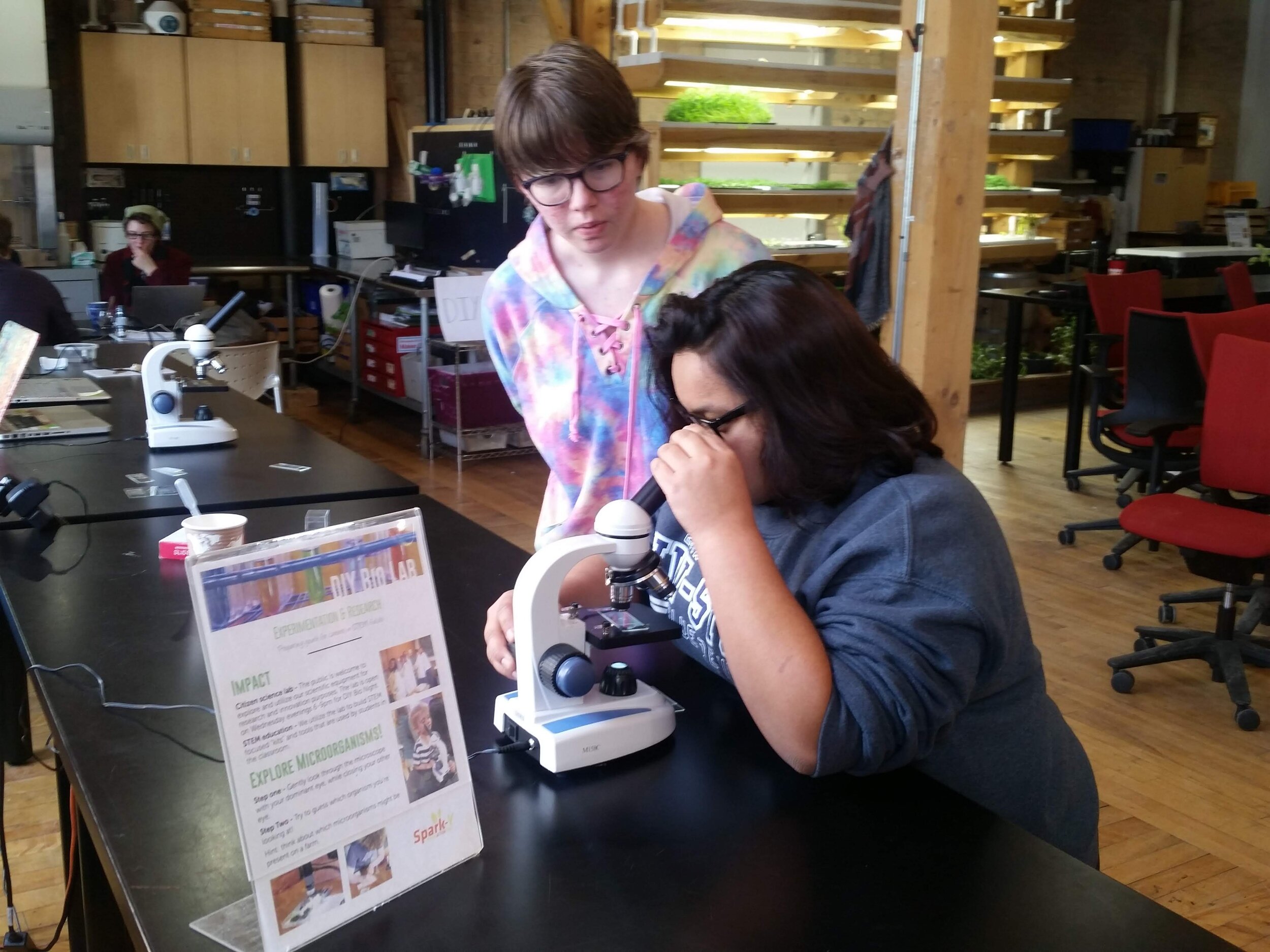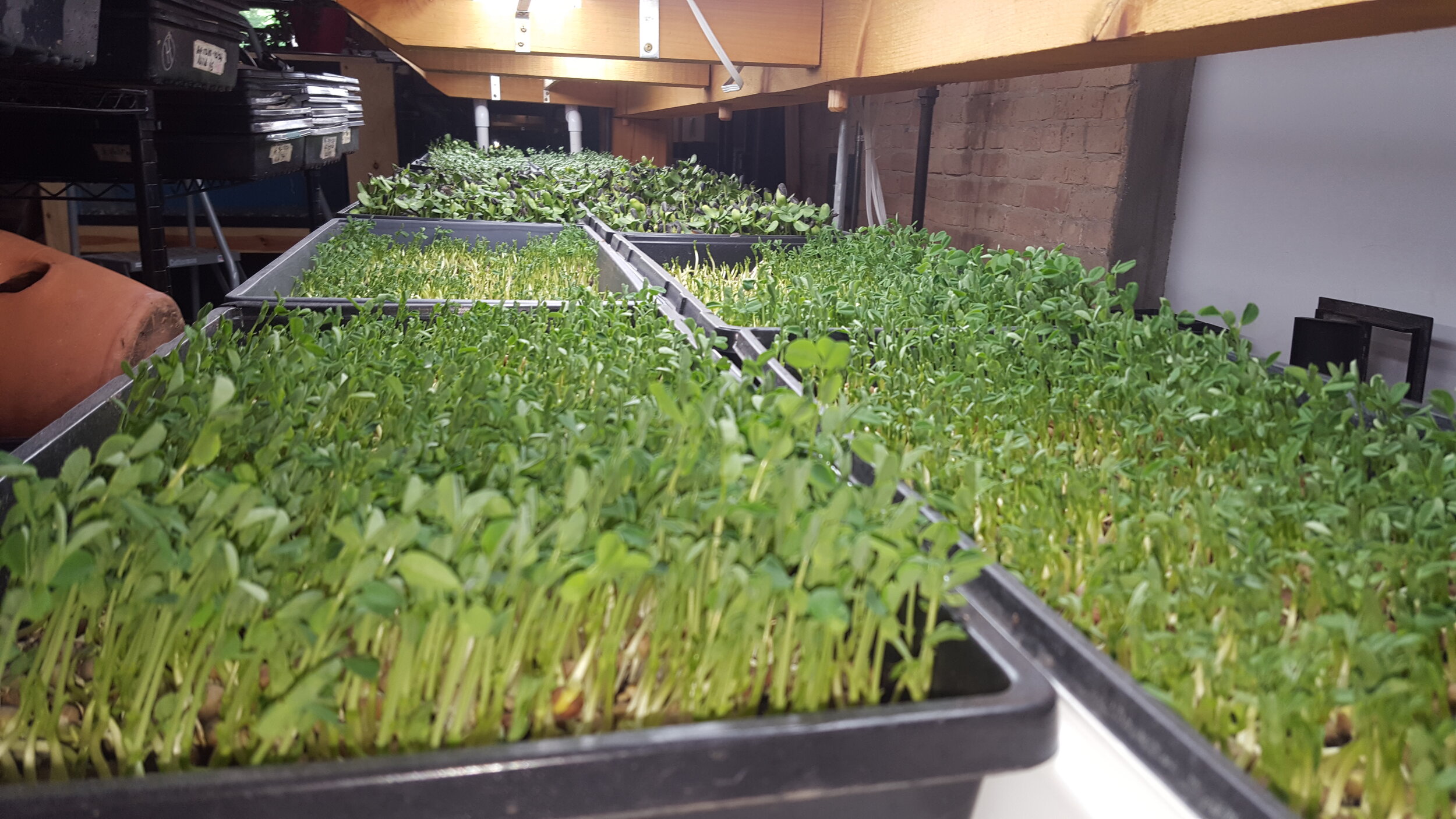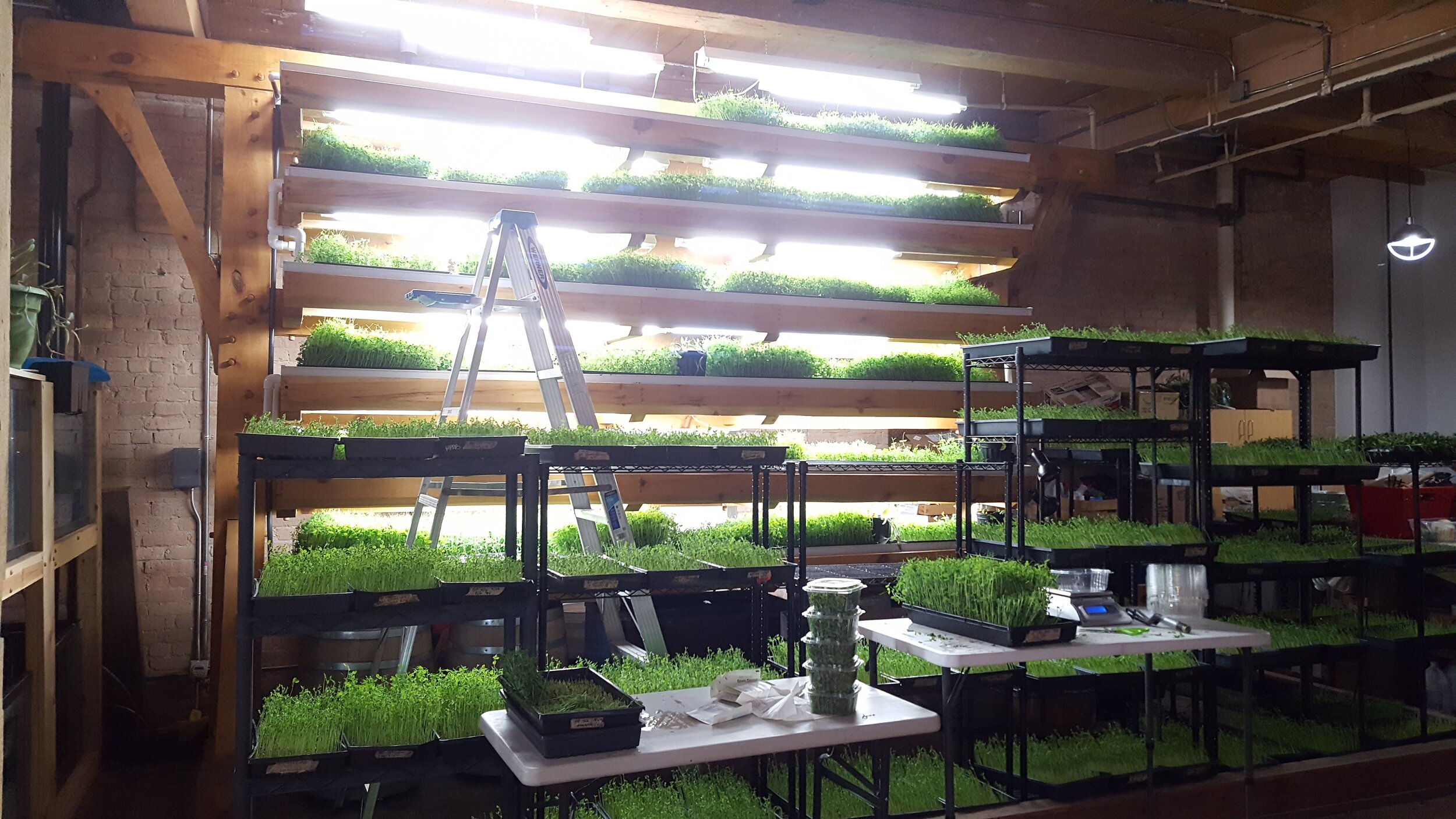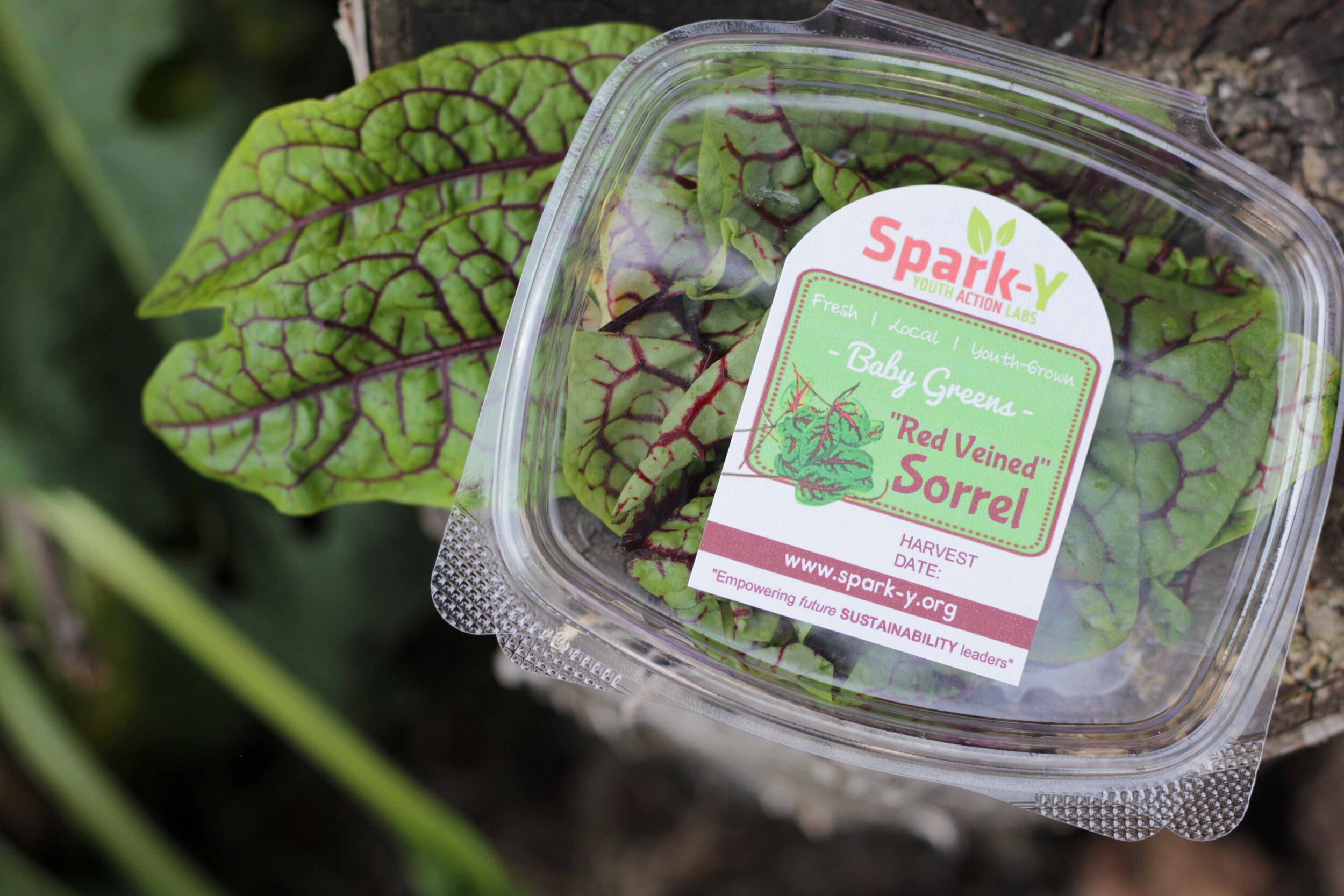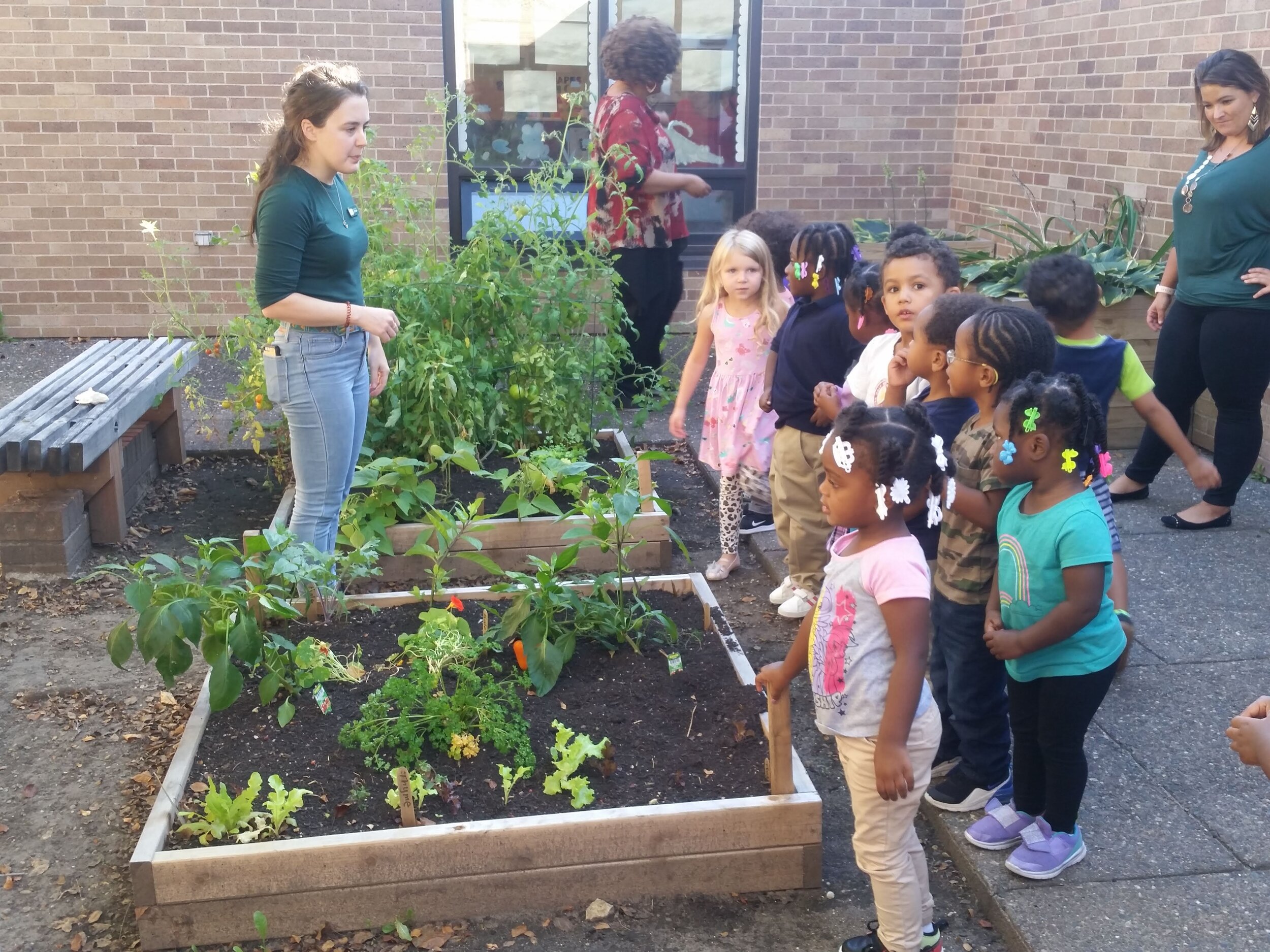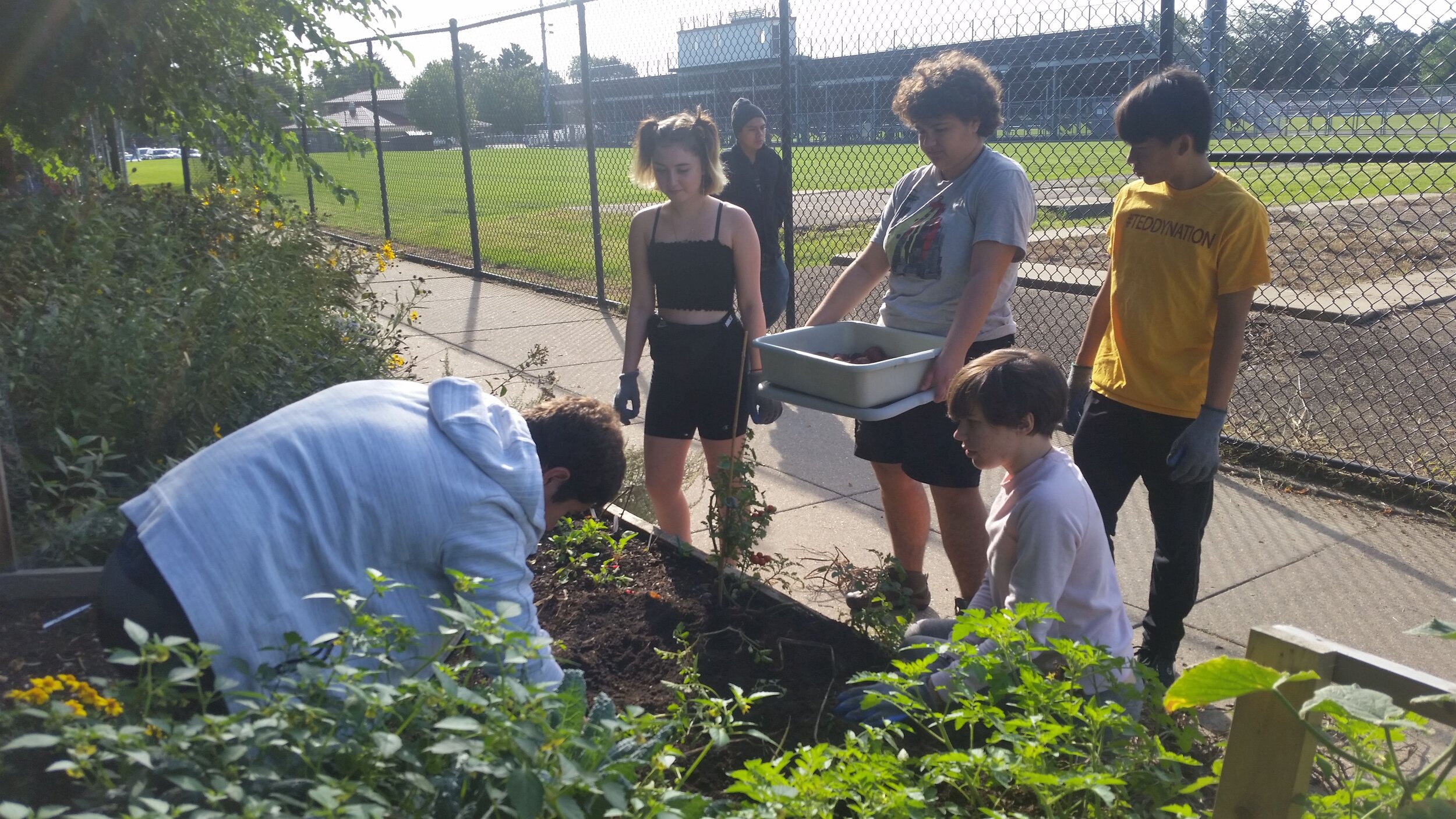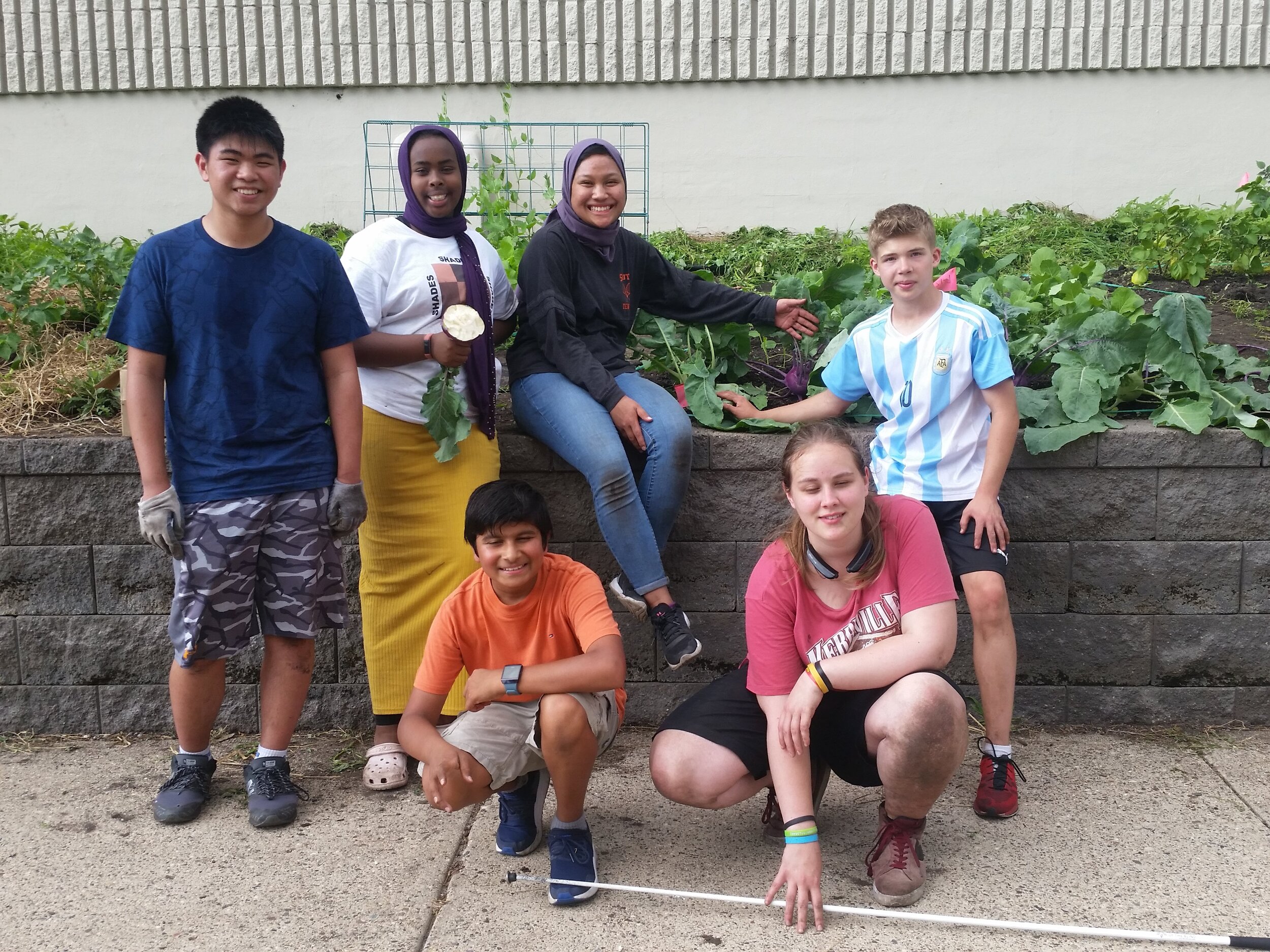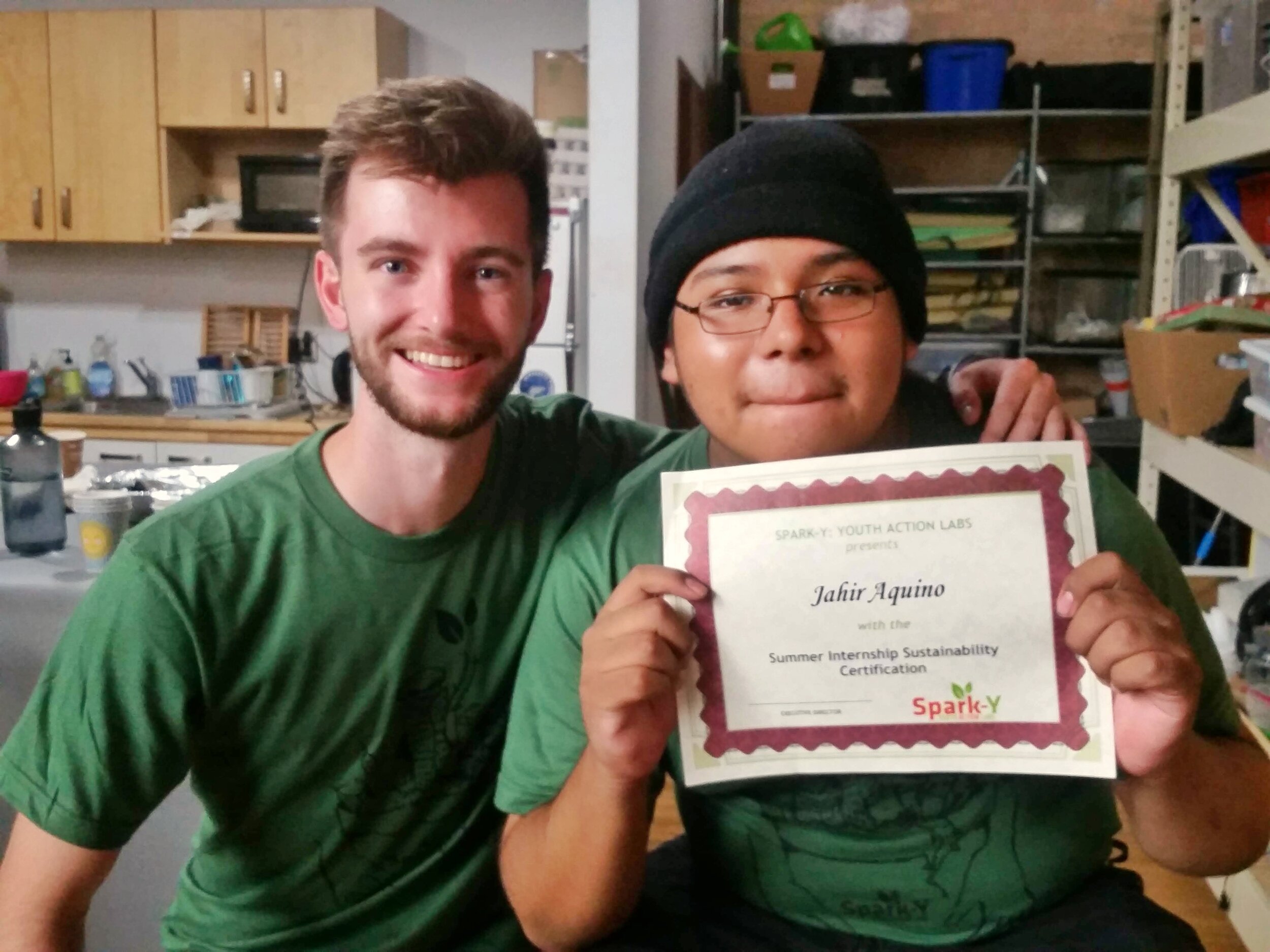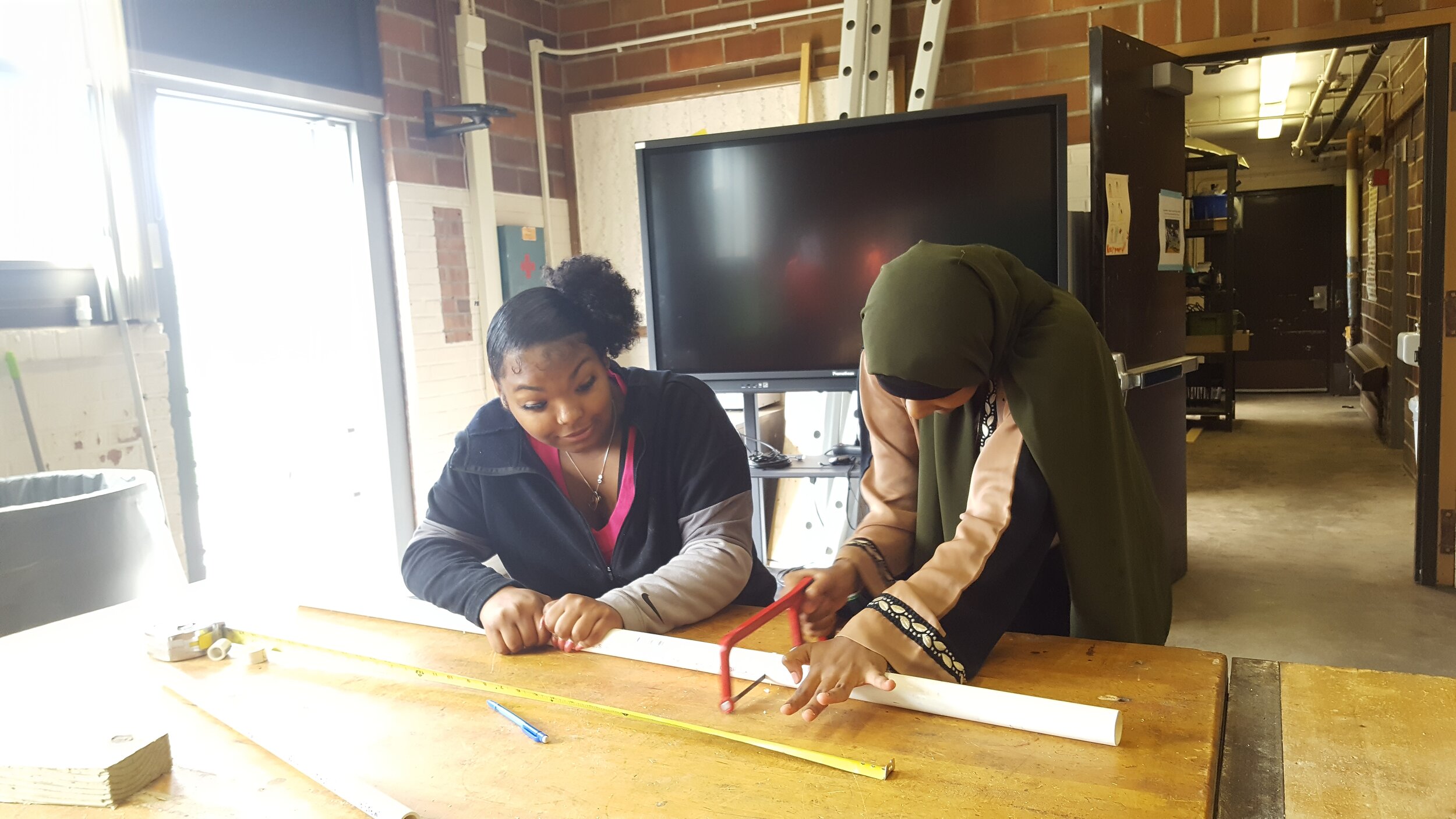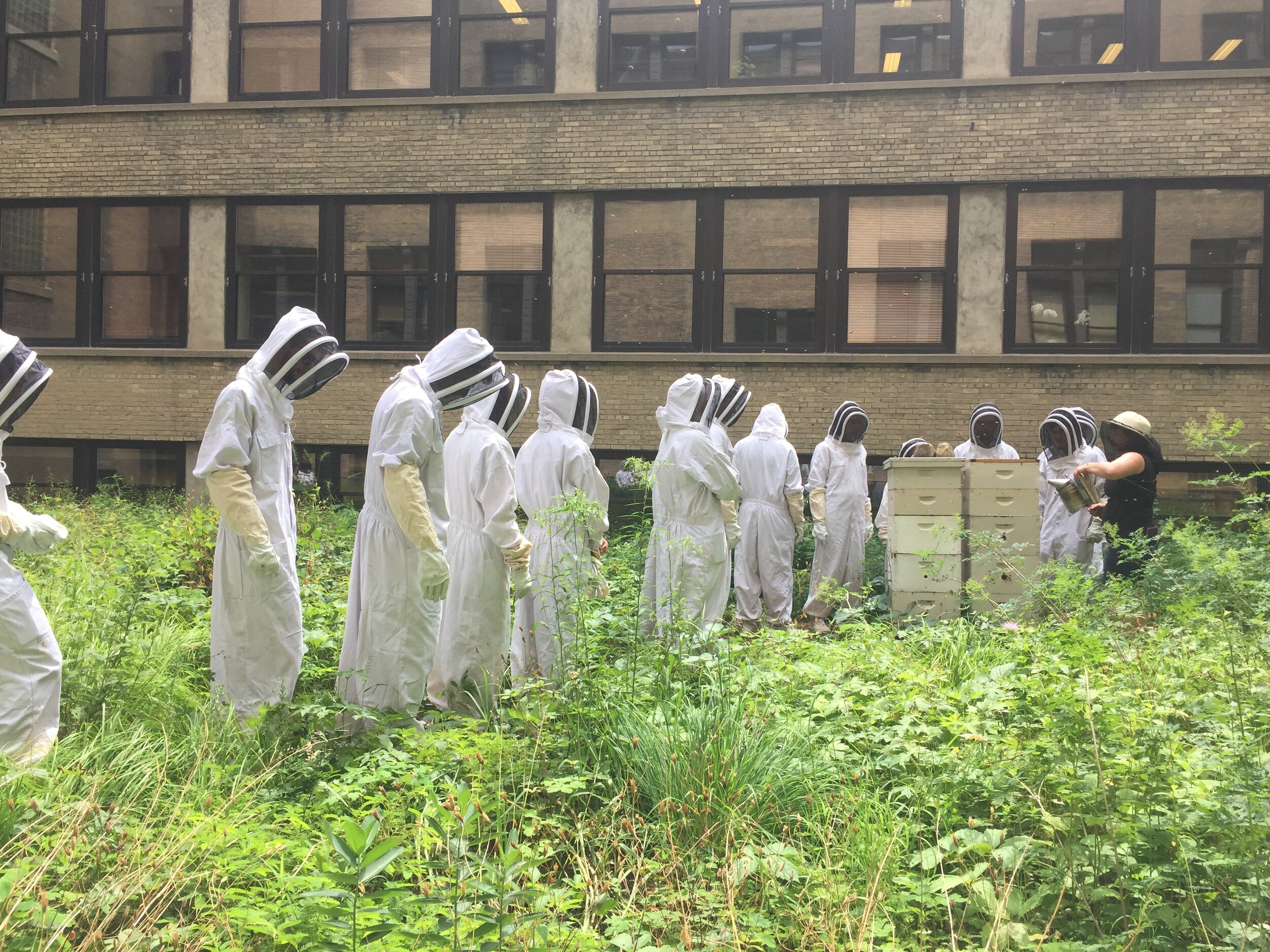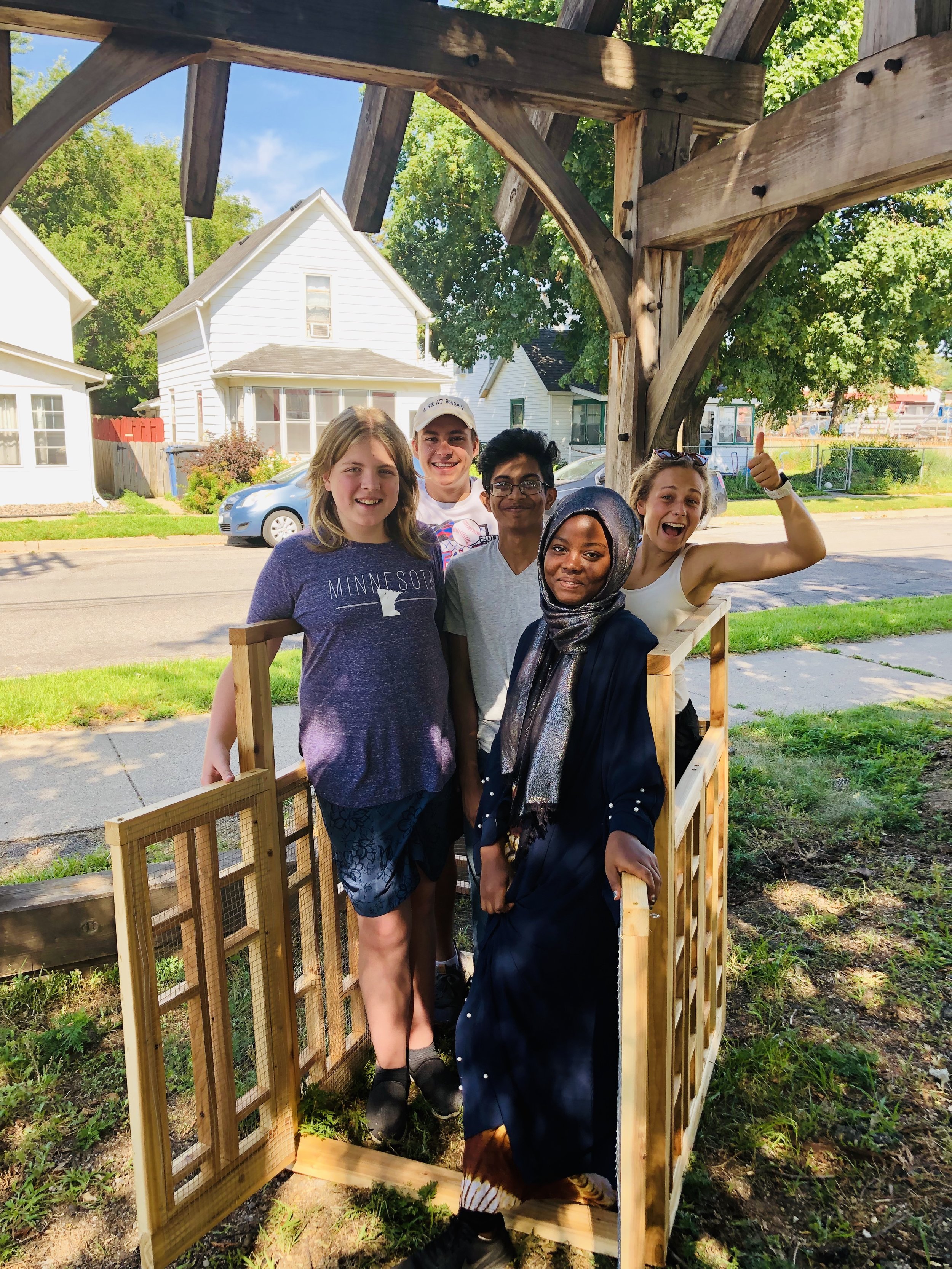In partnership with Minnesota Sea Grant and the North Central Regional Aquaculture Center, (NCRAC), Spark-Y Interns developed and filmed two instructional videos relating to tilapia - a popular fish used in aquaponic systems.
Viewing entries tagged
Urban Ag Lab
The following blog post was contributed by
established education blogger, Alyssa Abel.
In today’s changing environmental climate, society needs eco-innovation and a sustainable focus more than ever before. Social movements and innovative initiatives are one way to push environmentalism to the forefront of our world, but we have an even better tool at our fingertips — teaching students how to live sustainably.
Today’s educators have a crucial responsibility in terms of sustainability education. It’s essential to raise the next generation into eco-conscious, self-sufficient world citizens who understand the immediacy of environmental responsibility. Youth programs like Spark-Y are embracing hands-on environmental education — and more need to follow.
Sustainability education encompasses all school subjects and extends far beyond the classroom. It gives students real-world skills they can use to improve the planet. It provides today’s children with the self-sufficiency they need for tomorrow. It offers them a deeply engraved understanding of why the environment is important.
Here’s what sustainability education teaches students — and why educational environments should make it a priority.
1. Interdependence Between Humans and the Environment
The environment provides our nourishment, sustenance and shelter, giving us everything we need to survive — and yet its part in human lives is increasingly ignored.
Trees provide lumber, food sources and oxygen, and they support various ecosystems in addition to humans. The water cycle would fall to disruption without them, causing extremes like droughts and massive flooding. And yet forests have declined by 32% since the rise of the industrial era, with 15 billion cut down every year. Deforestation also accounts for 13% of global fossil fuel emissions.
The ocean also makes our survival possible by regulating weather patterns and producing more than 50% of our planet's oxygen. But it has become increasingly polluted with plastic, oil and toxins, killing off the marine life keeping the world afloat.
While modern society too often strays from nature, humanity and the environment are inextricably intertwined — and to prevent further carelessness and damage to our ecosystem, it’s important to show students that. Teaching theoretical environmental science might be a start, but giving children the chance to experience the concept firsthand is infinitely more effective.
Through sustainability programs like Spark-Y’s Urban Agriculture Lab and school partnership programs, students have the hands-on opportunity to explore how humans and the environment sustain each other. Operations Director Caitlin Barnhart explains how working directly with an edible garden space allows youth to “harvest produce, explore the edible landscape, and often have their very first experience with home-grown food.” This kind of firsthand experience allows students to make a physical, profound connection between the environment and their way of life.
Barnhart with her 2019 Summer Interns
2. The Balance Between Environment and Society
Teaching adolescents how to identify environmentally friendly companies — and develop their own sustainable business endeavors — can lead to a more eco-friendly societal future. Consumers of decades past often didn't know how business and production affected the Earth, but that's changing fast.
Sustainability affects the economy as much as it does ecosystems. In turn, modern society has a marked impact on the environment. When it comes to building a better, greener future, business practices are the place to start — which makes sustainability-focused business education like Spark-Y’s LEEF classes (Leadership, Entrepreneurship, Environment, Future) especially important.
Spark-Y Lead Educator, Sarah Pilato
As sustainability educator Sarah Pilato says, hands-on environmental education encourages students to “explore the real world…outside of their classroom and how they as individuals can have an impact on it.” Programs like these teach current students and future leaders the three pillars of ESG — environment, society and governance — so they learn how to balance and approach them in their own futures.
Already, millennial and generation Z consumers are more willing to spend on eco-friendly products. Three-quarters of millennials have changed their buying habits, looking for sustainable products to support the environment. By offering current youth the opportunity to develop an understanding of sustainable entrepreneurial and agricultural practices, educators can make the upcoming generation even more eco-actionable.
3. Sustainable Life Skills
Environmental programs like agriculture labs and sustainable projects encourage students to re-think their relationship with the environment and develop eco-friendly skills and habits for their futures. Kids will learn to grow their own food, conserve resources and choose sustainable products — but early sustainable education can also have a profound impact on their life pathways.
Many colleges are now offering sustainability degrees and majors in related fields. Students who pursue green majors seek careers as biologists, environmental scientists, researchers and much more. Agriculture, energy and manufacturing are popular fields for sustainability, as they are always looking to integrate eco-friendly processes. Giving kids a head start with early sustainable education will do more than instill sustainable life skills — it may also help prepare them for successful careers.
With an interest and career path in environmental studies, students can open green businesses, join eco-friendly companies or influence existing organizations to revise their current strategies. Sustainable initiatives like Spark-Y’s project-based internships develop leadership abilities, stress the value in collaboration, enhance communication skills and drive sustainable thinking — potentially inspiring students to pursue sustainable careers of their own.
Images: Spark-Y Microgreens grown by youth for sale to local co-ops, restaurants and CSAs. Youth designed and built the timber-frame aqauponic growing tower.
4. Respect for the Planet
Earth is the only home the next generation has — and learning more about it is essential to keeping it alive.
Respect for our planet means learning its history, functions and what it needs to prosper. What children learn in school shapes them for the rest of their lives. Starting early with sustainable education teaches kids why the environment is important, how it should be treated, and how they play a crucial role in the future of its existence.
Increased respect for the planet means less littering, polluting and wasting of resources. It means more sustainable habits and efforts to conserve resources. More than anything, it means a mindset rooted in commitments to environmental change — a mindset that is cultivated and solidified early on.
5. Future Preparation and Adaptation
Today's planet won't be the same only decades from now. Predictions don’t bode well, but education can both prepare students for future changes and give them the tools to prevent further damage. If teachers, professors and parents educate their students now, we'll give them the ability to survive in an unknown future landscape. More importantly, today’s students may go on to become future scientists, researchers and activists who will work to protect our resources.
Environmental education equips students to navigate a changing environment with the proper knowledge of self-sufficiency, science and conservation.
Creating a Better Future
Before their involvement in a Spark-Y program, only 41% of students believed they had the power to affect change. After their experiences with hands-on environmental education, 94% believed they could change the world. Wouldn’t it be something to see that initiative reflected in schools and programs across the nation?
The world is changing — and with it, we need to change our approach to the world. By emphasizing environmental themes and sustainability education in schools, we can do more than give the next generation the tools they need to take on environmental change — we can give them a better future.
ABOUT THE AUTHOR
Alyssa Abel is an established education blogger with a special interest in new learning methodologies. Read more of her work for students and educators of all levels on Syllabusy.
The following blog post was written by Spark-Y 2019 Summer Internship Casket Arts Team:
Umulkheir Abdinoor, Raiyyan Ahmed, Sarah Anderson, Nicolas Campion, and Piper Lepine.
As urban areas continue to expand in Minneapolis, green space is becoming more scarce. In turn, bee population decline and a cascade of environmental issues follow. To combat this, our internship team has been working hard to construct several pollinator houses, a compost bin, and two planter beds to enhance the green space surrounding the Casket Arts Building. In doing so, we have gained valuable skills involving teamwork, construction, communication, and so much more.
Pollinator Houses
Our first project this summer has been designing and building pollinator houses which will hang in trees outside of the Casket Arts Building. These pollinator homes target the native solitary bee population. Interestingly, of the 400 + bee species native to Minnesota, only 2% colonize in hives. Therefore, the majority of species are solitary bees. They work independently to gather their own pollen and nectar, as well build their own nest to lay eggs. In more developed areas, solitary bees struggle to find places to nest which contributes to population decline. Thus, the implementation of pollinator houses is important for sustaining native bees species. Check out our neat triangular design and stop by the open house to learn how you can make your own!
Pollinator Houses
Compost Bin
Our second project has been constructing an outdoor compost bin for the Casket Arts Building and community members to utilize. Everyday, large portions of food scraps and yard waste end up in landfills which emit problematic greenhouse gases such as methane. However, by composting organic matter, carbon emissions are reduced and nutrients are harvested in the soil. Accordingly, a rich soil containing beneficial fungi and bacteria is generated. Thus, the implementation of a communal compost will reduce methane emissions and provide rich soil for Spark-Y’s Urban Agriculture Lab. Additionally, we are working with a local artist to design a sign to complement the bin!
Compost Bin
Planter Beds
Our third project has been constructing two planter benches for the Casket Arts Building. These beds provide 64 square feet of garden space, and also serve as a seating area for community members. We plan to fill the beds with Minnesota native pollinator plants, with hopes of growing fresh produce in future seasons. The implementation of native pollinator plants serves as a valuable food source for local bees, especially those living in our Pollinator houses mentioned above.
Planter Beds
Team Member Highlights:
Umulkheir Abdinoor - “I have enjoyed learning how to build things, design things, and how to run my own business.”
Raiyyan Ahmed - “I loved how hands on this internship was and I wouldn’t change the experiences I gained this summer for anything else.”
Sarah Anderson - “This internship has taught me valuable project management, leadership, and building skills that will help me in future paths of life. I am excited about the local impact our project will have and grateful for my overall Spark-Y experience.”
Nicolas Campion - “This experience has opened my eyes to the world of pollinators and how important they are in our everyday life. By working to provide resources for our native pollinators, we can foster an environment that supports all types of plant and wildlife.”
Piper Lepine - “Being my first job, this internship did an amazing job of teaching me what it is like to be in the workforce and I will be able to take my experiences to my future jobs.”
The following blog post was written by Caitlin Barnhart, Urban Farm Manager and Education Facilitator; with Carley Rice, Lead Education Facilitator, on the launch of Spark-Y’s On-The-Job Training Program.
What does empowerment mean?
To Spark-Y’s On-The-Job Training students, it means breaking down social and economic barriers.
Through a partnership with Summit Academy OIC, and the Skills and Opportunities for Achievement & Responsibility (SOAR) Workforce, Spark-Y was able to offer a brand new program this past semester: A 6-week immersive job training course in which students learn professional development skills and have the opportunity to become a ServSafe Certified Food Manager - an industry-recognized certification that allows them to compete in the workforce at a level above their peers.
This program is vastly different from our traditional programming. It's the first time that completing our course comes with a professional, industry-recognized accreditation. It’s also the first time we’ve limited participation to those who are 18-24 years of age and who have a history with the legal system.
A major goal of this program is to overcome barriers that have held back historically disadvantaged populations and to help close the opportunity gap. We are doing this by:
Sending job opportunities to students, teaching youth how to find jobs they are passionate about.
Working with students to develop interviewing skills.
Helping students create resumes and apply for jobs.
Creating a support system that they can rely on.
One story I would like to highlight is that of King Heirs. King is a student at the Minnesota Internship Center (MNIC), a high school for youth that are seeking additional support to help them graduate. MNIC is one of our earlier school partners and the site of our first-ever, in-school program back in 2009. King learned of our On-The-Job Training program through the MNIC and immediately applied. He was the only student of 8 enrolled who showed up for every single class, constantly going above-and-beyond to achieve the goals that he set for himself. Homework was not a part of this training program, but that didn’t stop King from regularly asking us to send him links to practice exams or if he could take home next week’s assignments to finish over the weekend. When it came down to it, King was the only student who took responsibility for getting himself downtown to the exam center at 8am on a Thursday morning. He sat through a mandatory 8 hour training session, and then passed his ServSafe exam with flying colors! During one of the course days we were discussing passion and how it relates to career choice. King expressed his desire to become a millionaire one day and then he said something that will always stick with me: “Someday, when I’m a millionaire, I’m going to donate a bunch of money to Spark-Y.” Sometimes having an impact on one student’s life is truly a success story.
This program has a huge potential for students like King who are willing to stick it out through to the end, though it certainly wasn’t all daisies all the time. Carley and I quickly learned that a couple of white girls from the burbs weren’t going to make much of an impression on these students. So what did we do? We brought in speakers that had more similarly aligned backgrounds, and could really connect with the students about their experiences. Shout out to Quinten Osgood, Community Outreach Coordinator for Twin Cities RISE!, and to Bob Blake, owner of Solar Bear and organizer for MN Interfaith Power and Light. These two speakers provided relatable stories and encouragement to the students, while adding to the network of professionals and mentors available to them.
This first On-The-Job Training program was most certainly a learning experience that we now have the knowledge to improve. In the future, we plan to integrate this program more closely with our others by: encouraging participation from current or previous Spark-Y students; offering positions in our Summer Internship following the training course; and working with Summit Academy to enroll students into college courses post training program. Whatever the future holds for these students, Spark-Y has their back. And as an organization, we will continue to provide pathways that breakdown socio-economic barriers and create positive change for our youth.
